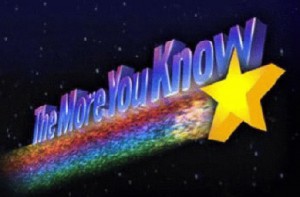
Maybe I’m only noticing something that goes on all the time, but it seems as if more and more people are whining about rights and (more accurately) how something or something is infringing on a right. Today’s case in point: this Examiner article by Steve D. Jones.
In 1892, the racist Arkansas legislature passed the “poll tax”, charging citizens one dollar (a large amount of money during this period of history) to exercise their constitutional right to vote. The poll tax law was passed during the heyday of “Jim Crow laws”, with the intent of stopping a majority of blacks and other poor “free” men from electing unwanted lawmakers. The tactic worked; black participation in elections fell off tremendously, ringing in the era of segregation and racism which followed.
[***]
Today a similar tax exists – the “gun tax”. If a citizen is able to fork over the $150 the state charges for a CHCL permit, they will issue you a “right to bear arms”, good for five years. However, if said citizen is not wealthy enough to afford this exorbitant gun tax charge, the state of Arkansas will strip his/her right to self-defense from them.
[***]
The Arkansas CHCL permit charge could be reduced tremendously, but it would still remain a “gun tax” against our rights. The Second Amendment to the Constitution and the Arkansas Constitution says specifically and without a doubt that the people of this state have the natural right to possess and carry arms; however, the legislature stands in our way.
Where to start? First of all, there is nothing inherently illegal or unconstitutional about taxing or imposing a cost on the exercise of a right. Now, it could very well be that a tax/cost would be found to be unconstitutional because of how/why it is imposed, but nothing says categorically that you cannot require payment of some sort. (For example, think of permit fees when people apply to hold a rally in a public forum.) So, to the extent that Jones is suggesting that any cost associated with carrying a gun is unconstitutional, he’s just wrong.
Likewise, the fact that a cost is imposed on exercising a right does not mean that your right has been “stripped” or otherwise abrogated. The right still exists. In the context of the Second Amendment, that right has been defined as an individual right that is limited by the “well regulated militia” language. See generally U.S. v. Miller, 307 U.S. 174 (1939); accord Dist. of Columbia v. Heller, 554 U.S. 570 (2008). Nothing in the $150 fee required to get a concealed-carry permit imposes any additional limits on that right.
Finally, Jones’s initial analogy between the poll tax and the cost of a concealed-carry permit is flawed. The poll tax was outlawed in federal elections by the 24th Amendment to the U.S. Constitution in 1962 (ratified in 1964). In Harper v. Virginia Board of Elections, 383 U.S. 663 (1966), the Supreme Court extended this prohibition to the states via the Fourteenth Amendment’s Equal Protection clause. Thus, it wasn’t that poll taxes were found to be unconstitutional because of their infringing upon a person’s right to vote; they were found to be unconstitutional because the equal protection clause extended the protections and rationale for the 24th Amendment to state elections. For Jones’s analogy to make sense, he would have to be arguing that imposing a cost on getting a concealed carry permit is an equal protection violation, which he definitely is not.
